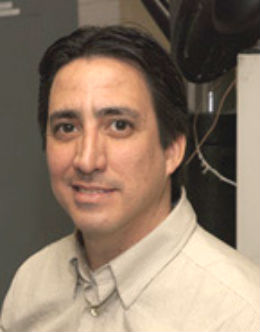Welcome to Indigenous Futures in Engineering, Queen's University
Search
Duncan Cree

"It's the challenge, when a design problem is given to you, you have to figure out the best approach to solve it."
Duncan Cree has some good and surprising advice he wants to share with students, "Be prepared mentally to do a course a second time. Don't think that you've failed a course because you're not smart enough -maybe your study skills just need some improvement."
In 1999, Duncan graduated from Concordia University in Montreal with a Bachelor's degree in Mechanical Engineering. He worked for the National Research Council's (NRC) Flight Research Lab in Ottawa and acheived his P.Eng status before returning to pursue further education in engineering. His Master's degree was followed by a PhD in Materials, specifically looking at the production and characterizations of three-dimensional cellular metal-filled ceramic. This type of material has uses in space travel and exploration.
Upon completing his doctoral dissertation, Duncan became the first Indigenous person in Canada to earn a PhD in Mechanical Engineering. He currently works at Queen's University in the Department of Civil Engineering, where he is an Assistant Professor.
In high school, Duncan wanted to be a car mechanic like his father. But with the advice of a high school teacher, he went to study aircraft mechanics and then on to university. He decided to pursue an engineering degree in university because he really likes "technical problem solving and being challenged."
"Some people fear a higher education will change you and make you into a different person or make you think like a non-Native," Duncan notes. For him, this was not the case at all. Because of school, he overcame low self-esteem and gained more confidence in himself, this was one of his greatest accomplishments as a student.
Duncan has had many adventures because of his choice of engineering as a career. Most notable in recent years was a trip to China in 2007, where he was sent as one of only ten people by the Canadian Foundation for the International Space University to participate in a nine-week Space Studies program. In 2011, he was awarded the National Aboriginal Achievement Award (now Indspire) for his academic accomplishments. Duncan is especially proud of this award, because it was given to him by his own people.
He knows that school is tough, especially when you're shy like he is, but Duncan got through it with a lot of hard work, determination, and by staying focused on what his goals were. He carried that with him throughout his studies and into the challenge offered by the Space Studies program in China. He hopes that more Indigenous young people choose to pursue post-secondary education because it helps First Nations communities by developing businesses and infrastructure which ultimately lead to communities becoming self-sufficient.
In his own time, Duncan enjoys travelling back home to Kanehsatake to fish, hunt and ride on his ATV. He also participates each year as a judge of the Quebec Aboriginal Science and Engineering Association science fair.
See also:
Researcher receives National Aboriginal Achievement Award (Queen's Gazette)
Duncan Cree is an Insdpire Laureate (Indspire)
Video profile of Duncan Cree (Indspire via YouTube)
Duncan Cree gets spacey in China (Concordia Journal, from 2007)
